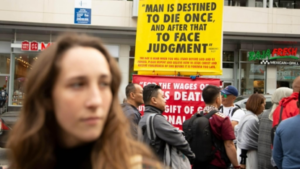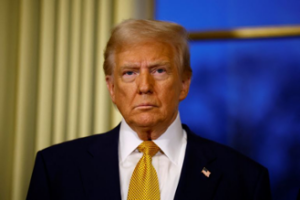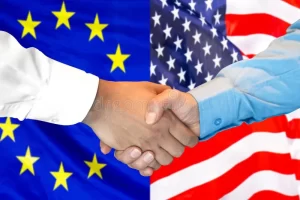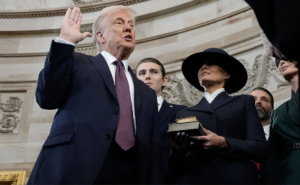The evidence is clear during major world athletic championships, in mega box office movies and in various other ventures and professions on the international scale, Jamaica is a powerful global brand, packing more punch than its size.
So strong is brand Jamaica that people who live in faraway continents and have never set foot on the island identify with its music, its colloquial language, its athletic prowess, its food, and general culture.
So impressive is the Jamaican brand that the Secretary-General of the United Nations made it his business to travel to the island to ask the government to use the strong, star-power Jamaican brand to convince other nations to bow.
Jamaica must not take lightly this signal move by the United Nations. Its Secretary-General António Guterres, on his visit with Prime Minister Andrew Holness a few years ago, whispered sweet nothings as he paid tribute to Jamaica’s ability “to invade peacefully the whole world, with its culture, its music, and its art.”
He posited that the Jamaican brand is a testament that diversity in the post-colonial era can be a “richness, not a threat,” as long as the right policies are adopted.
Secretary-General Guterres did not acknowledge Jamaica’s Christian underpinnings; he did not count our many churches, nor did he mention the fact that the island is facing serious economic, social, and moral challenges. He was pretty much focused on brand Jamaica as a cultural superpower, blessed with the capabilities to influence the world.
The United Nations is firmly of the view that it has struck a winning formula when it coerced the Jamaican government to use its compelling brand to advance the Satanic agenda to infiltrate cultures that are resisting the beast.
Wherever in the world one goes and mentions Jamaica, immediately faces light up, the names of Bob Marley and Usain Bolt are dropped, paths are cleared, and strangers become familiar friends.
Jamaicans stand out like a sore thumb, positively or negatively, wherever they are in the world because they carry a bold swagger and rambunctious brag that are distinctly ours.
The reggae beat and its revolutionary one-drop appeal are emulated, simulated, and echoed across cultures near and far.
It is not unusual for people, especially in Europe, to believe that Jamaica is the Caribbean and that all the other nations in the region are somehow located on a mainland called Jamaica.
Governments have told us that Jamaica is a tourism mecca. The island has won big at the World Travel Awards on many occasions, triumphing in two of the most prestigious categories – ‘World’s Best Cruise Destination’ and ‘World’s Best Family Destination.’ These wins have solidified the country’s position as a premier global tourist destination, with infinite natural beauty and top-class attractions.
Research shows that a strong national brand will increase tourism, attracting leisure and business travelers, and should boost the local economy. Jamaica is a winner on this front, although tourism top dollars are mainly repatriated to foreign pockets, leaving pennies for the local economy.
So when the Jamaican Prime Minister announced to the nation that he would spend large amounts of scarce tax dollars to engage an international company to promote the Jamaican brand, many jawlines dropped to the floor.
Billions are already being spent annually through the Jamaica Tourist Board and the Ministry of Tourism as well as JAMPRO to do exactly this.
Is the Prime Minister declaring that the efforts of these arms of his government have failed? If an international body is to be engaged to promote brand Jamaica, will there be a cut in the budgetary allocations to these agencies?
Worse, it is well documented that New Zealand is seen as one of the top examples of best practice in nation branding, but Holness contracted the Spain-based Bloom Consulting company to carry out the suspicious international branding for the powerful Jamaican brand. Where is the Spanish record to justify Holness’ belief in Bloom’s ability to out-promote local marketers?
Interestingly, both the Ministry of Industry, Investment, and Commerce and JAMPRO, the state agency tasked with promoting Jamaican entities to the world, are linked to this strange move, which is being coordinated through the Office of the Prime Minister, along with the Planning Institute of Jamaica.
Of course, Bloom readily signed the very lucrative contract with the Jamaican government. After all, Jamaica is a well-recognised brand, a well-loved location, easy on the world’s senses, and a prime target of Satanic forces.
Nothing kills a bad product faster than good advertising. Beneath the star power of brand Jamaica sits a nation that has turned its back on God. Poverty is rife, children go missing daily, murder and abuse are a dime a dozen, incidents of mass shootings are mounting, corruption levels, like the basic cost of living, are skyrocketing, professionals—like teachers, nurses, doctors, and others—are migrating in droves, the health care and education systems are in shambles, and eight of the nation’s top parliamentarians are under investigations for illicit enrichment.
Jamaicans must understand that nation branding is a powerful political tool, and if used wisely, it will lift the image of the government as well as the nation on the global stage.
With the prime minister under the pressure of his uncertified statutory declarations and continued investigations for illicit enrichment, he is in dire need of rebranding both locally and on the international stage.
Jamaica’s image as a prime tourism destination, the sprint capital of the world, and the home of reggae music and swag culture are intact despite the alarming crime rate and the rise of lotto scamming.
Paying billions for a company to promote a brand that sits atop myriads of socio-economic and political problems is one sure way to kill that brand.
The nation still holds the record for having the highest number of churches per square mile, despite the fact that our people have not been evangelised.
The country is on edge and slipping fast. No company, whether local or international, armed with the most extensive marketing plan that can be designed, can change the trajectory of the judgement that is ahead.
We need to do what is necessary to establish our nation as the Goshen God said it is, submitting to divine rulership by going through a season of sincere repentance, prayer, and fasting, turning away from wickedness and seeking God’s face.
Perhaps marketing Jamaica in its dilapidated state may be of benefit to a government seeking a third political term in office, but it is the sure path to complete global annihilation for the ramshackled, crime-infested, God-rejected nation. Jamaica does not need other world branding; it is in dire need of repentance. Jesus is still the answer for the world today. He definitely is the answer for Jamaica.






